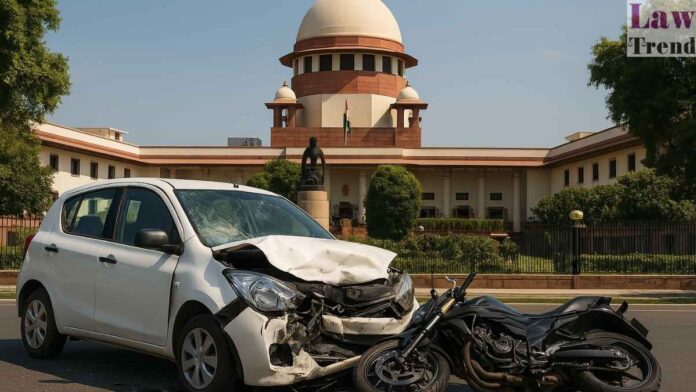In a landmark ruling clarifying the principles of negligence in motor accident claims, the Supreme Court has held that merely riding with a learner’s licence does not establish negligence. Overturning the decisions of the lower courts, the apex court awarded full compensation of ₹16 lakh to an IAS officer who lost both legs in a
To Read More Please Subscribe to VIP Membership for Unlimited Access to All the Articles, Download Available Copies of Judgments/Order, Acess to Central/State Bare Acts, Advertisement Free Content, Access to More than 4000 Legal Drafts( Readymade Editable Formats of Suits, Petitions, Writs, Legal Notices, Divorce Petitions, 138 Notices, Bail Applications etc.) in Hindi and English.




